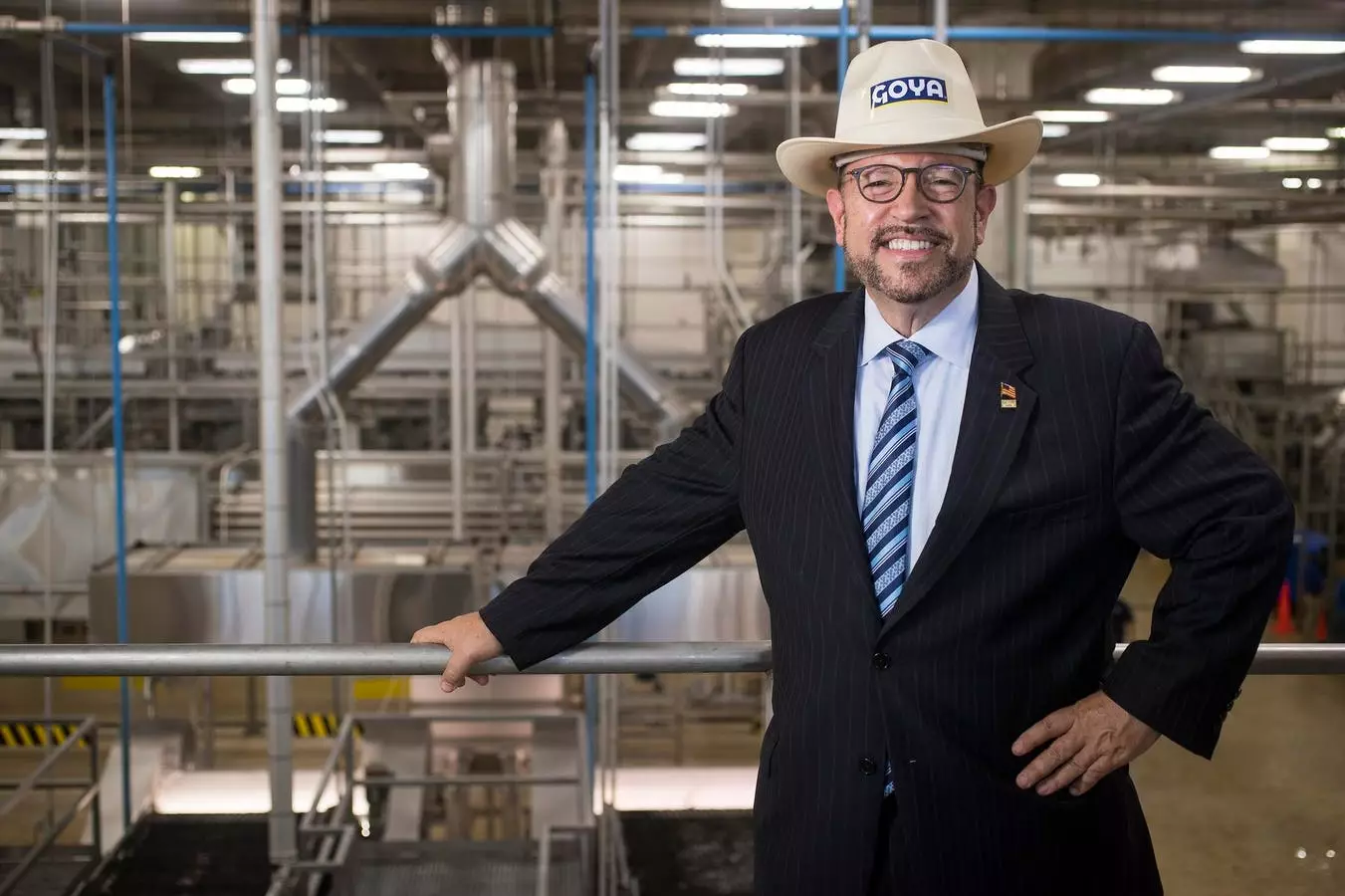In a move that can only be described as unconventional, Robert “Bob” Unanue, the longstanding president of Goya Foods, recently announced his departure from the organization via a press release. This announcement, made public on February 23, not only indicated the end of his 20-year leadership but also reflected the complex interplay of corporate governance and personal controversy. Unanue, whose family founded Goya in 1936, has long been a polarizing figure, and the unfolding of his exit appears to encapsulate the turbulent intersection of food industry dynamics and political affiliations.
The press release itself contained striking language, as Unanue stated he had been informed of a board vote regarding his “employment” status but was left in the dark about the specifics surrounding the decision. This lack of clarity raises questions about internal governance within Goya Foods. When a company’s leadership structure comes into question without clear communication, it can lead to uncertainty for both employees and consumers alike. The absence of a public statement from Goya’s board further complicates the situation; it implies either a tactical silence or a lack of cohesion about how to handle the internal strife.
Unanue’s tenure has been marked by controversy, particularly due to his public alignment with Donald Trump during a period when political affiliations significantly affected consumer preferences and purchasing behavior. His unapologetic stance has undeniably polarized Goya’s customer base, making his exit even more critical to analyze within the broader context of corporate strategy and social responsibility.
The history of Goya Foods is intertwined with the Unanue family’s legacy, originating from a Spanish immigrant’s dream. Under Unanue’s leadership, the company not only flourished but also grapples with the challenges of modern consumer sentiment. The backlash faced following Unanue’s support for Trump during the COVID-19 pandemic exemplified the risks associated with business leaders straddling the line between political stances and brand identity. Instead of transcending these challenges, Unanue further entrenched himself in contentious political discussions, disregarding the potential consequences on his company’s public perception.
Despite economic success—evidenced by Goya reporting peak revenues of $1.5 billion in 2023—the company’s growth amidst political turbulence raises critical questions about sustainable leadership. It appears Goya Foods thrived financially even in the wake of a boycott. However, it is important to discern if rapid fiscal growth equates to enhanced brand loyalty or if it merely reflects the company’s staple position in the food market, irrespective of its leadership’s political affiliations.
Unanue’s dismissal from Goya throws light on broader discussions of corporate governance and accountability. The board of directors, expressing a need for a more unified front, chose to censor his public speaking—a move suggesting their growing discomfort with his unpredictability. It appears that his controversial public statements become an impetus for the board’s eventual decision to sever ties, highlighting the complexities of leadership within organizations that are essentially public-facing.
As Goya’s board attempts to navigate the dynamic pressures of consumer sentiment and corporate responsibility, one must question the internal mechanisms by which they have elected their leaders. Given the need for transparency and a unified corporate vision, Unanue’s departure may serve as an alarming reminder of the fragility of leadership in the current socio-political climate.
As Goya Foods stands at a precipice of potential transformation, the future remains uncertain. The recent change in leadership has opened the floor to new possibilities for the company to redefine its narrative and establish stronger ties with a diversified customer base. The organization must consider how to effectively manage not just its operational practices but also its public image moving forward, especially in a climate where consumer values are rapidly changing.
The exit of Unanue is more than just a company leader departing; it represents a crucial moment in which the responsibilities of corporate leadership and its influence on brand identity are amplified. The implications of this transition will resonate across the food industry, prompting other companies to re-evaluate how they approach corporate governance, public engagement, and brand authenticity in an ever-evolving market landscape.


Leave a Reply